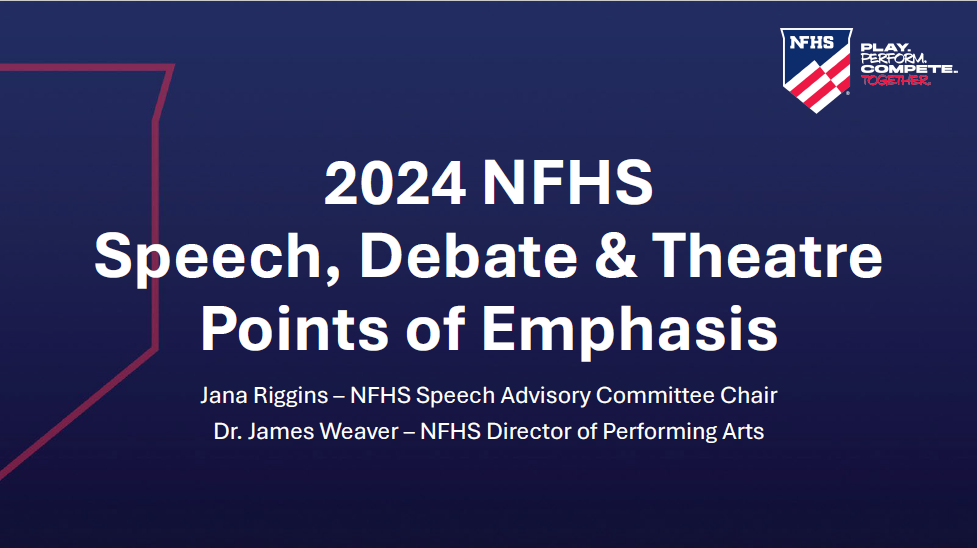Artificial Intelligence (AI) Integration in High School Music
By NFHS on February 23, 2024 Resources PrintPotential positives of integrating AI into high school music programs include:
- Enhanced Musical Learning: AI offers sophisticated tools for music composition, analysis, and performance enhancement, providing students with new avenues for learning and creativity.
- Personalized Education: AI may facilitate personalized learning experiences, catering to the individual skill levels and learning styles of students, potentially enhancing their musical proficiency.
- Increased Access to Diverse Music: AI-driven tools can introduce students to a broader range of musical styles and cultures, fostering a more inclusive and diverse understanding of music.
- Improved Performance Analysis: AI has the ability to analyze performances and provide feedback, helping students refine their techniques and improve their musical abilities.
- Educational Opportunities in Technology and Music: Integrating AI into music programs provides an opportunity to educate students about the intersection of technology and the arts, preparing them for a future where these fields increasingly overlap.
- Support for Composers and Arrangers: AI can assist in composing and arranging music, enabling students and educators to experiment with creating original pieces or adapting existing works within copyright laws.
- Equitable Resource Distribution: By providing guidelines for equitable access to AI tools, schools can ensure that all students, regardless of their background or the resources of their school, have access to these innovative technologies.
Overall, the responsible and creative use of AI could significantly enrich the educational experience in high school music programs, offering new tools for learning, creativity, and performance.
Potential Negatives of integrating AI into high school music programs include:
- Resource Disparity: Not all schools may have equal access to advanced AI tools due to funding disparities, which could widen the gap between different music programs.
- Overreliance on Technology: There's a risk that heavy dependence on AI for aspects like composition or performance analysis might diminish the importance of developing fundamental musical skills and creativity.
- Privacy Concerns: The use of AI in music programs may raise concerns about data privacy, especially if student performances and compositions are recorded or analyzed by AI systems.
- Potential Loss of Human Element: AI's involvement in music creation or interpretation could potentially lead to a reduced emphasis on the human, emotional, and expressive aspects that are central to music.
- Intellectual Property Challenges: Ensuring that AI-generated music or arrangements comply with copyright laws can be complex, potentially leading to inadvertent copyright infringements.
- Bias in AI Tools: AI algorithms, if not carefully designed, could introduce biases in music selection or analysis, impacting the diversity and inclusivity of music education.
Addressing these challenges will be key to ensuring that the integration of AI into high school music programs is beneficial and aligns with educational goals and ethical standards.
Policy Guidance for State Associations: Utilizing AI in High School Music Programs (Band, Choir, Orchestra)
Reference: President Biden's Executive Order on AI
Purpose: This guidance aims to assist state associations in incorporating AI technologies into high school music programs, considering the principles of the Executive Order on AI and the nuances of copyright and human creativity. For the integration of AI technologies in high school music programs, ensuring alignment with the principles of the Executive Order on AI.
Key Principles:
- Copyright Compliance and Ethical Use: Ensure that AI tools and platforms used in music education adhere to copyright laws and ethical standards. This includes using AI responsibly for creating or modifying musical pieces, particularly when those pieces are based on or inspired by copyrighted works. Educators and students should be educated about the importance of respecting intellectual property rights in the creative process, and any AI-generated music should be used in compliance with copyright and licensing agreements.
- Responsible Use of AI: AI tools should be used to enhance the educational experience in music programs, while ensuring they are safe, secure, and ethical.
- Augmentation, Not Replacement: AI should be used to augment musical learning and performance, through music composition software or performance analysis tools, without replacing the essential human elements of music education.
- AI Literacy and Education: Educate students and faculty about AI's capabilities and limitations in music, fostering an understanding of how AI can be utilized effectively in music education.
- Inclusivity and Equity: Ensure AI tools are used to promote inclusivity in music education, avoiding biases in music selection, composition, and performance.
- Data Privacy and Security: Adhere to strict data privacy and security protocols, particularly when using AI tools that require student data.
- Resource Accessibility: Address disparities in access to AI tools, ensuring equitable opportunities for all students, regardless of the resources available to their music program.
Implementation and Monitoring: State associations should facilitate training for educators and students in the use of AI in music education. Regular monitoring should be conducted to ensure AI tools are being used in accordance with these guidelines.
Conclusion: The integration of AI in high school music programs offers opportunities for enhanced learning and creativity, provided it is implemented responsibly and in alignment with educational goals, intellectual property laws, and ethical standards.
NFHS
Most Recent Articles
- 2025 Performing Arts Education and Creative Industry Meeting Materials
- Boys Lacrosse Season Preview - 2025
- Girls Lacrosse Season Preview - 2025
- nfhs news Risk Minimization Focus of 2025-26 High School Spirit Rules Changes
- nfhs news Supporting High Schools, State Associations to Determine Eligibility, Transfer Rules





